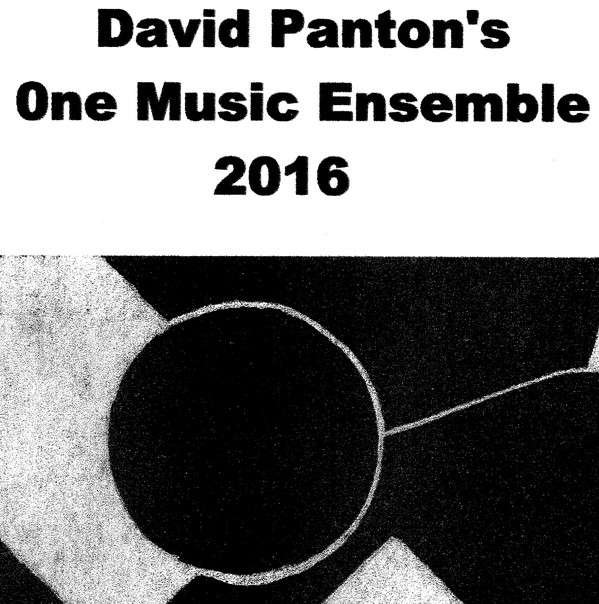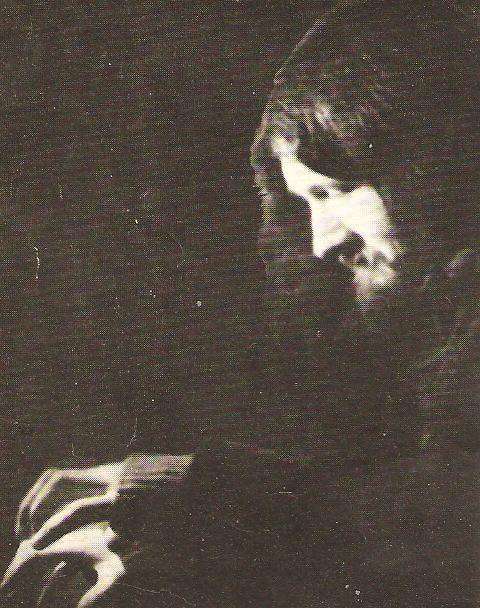
David Panton
David Panton's One Music Ensemble 2016
Album UK 2016 on Panton Music label
Jazz (Free Jazz)
David Panton:soprano/alto saxophones, bagpipes, piano, keyboard bass, digital drum set. Overdubbed recordings - 2014-2016 West Midlands All works by Panton published by D & ED Panton Music (c) (p) 2016 This album follows on from PM1315 David Panton’s One Music Ensemble 2015 and, like that previous album, it features overdubs by multi-instrumentalist David Panton, except that here, apart from one entirely improvised track, it consists mainly of improvisations based on thematic ideas which were written in memory of various people involved, in one way or another, with free/avant-garde/contemporary jazz and improvisation, and identified only by their initials - a sort of Enigma Variations. But these tracks are not, as pointed out in the liner notes to PM1315, ‘…..variations on a [general] theme or portraits created by pastiche or imitation, rather they are standalone pieces which deliver personal tributes on their own terms [and] have distinctive thematic ideas which open and close each piece and which provide the base upon which the intervening extended improvisations develop.’ Instrumentation includes Panton on bagpipes, keyboard bass, digital drum set, soprano saxophone, alto saxophone, and piano and were multi-track recorded by him during the period 2014-16. The major difficulty of working in this way is in creating a sense of the spontaneity of an improvised live performance when there is inevitably a long delay between laying down the initial track – in this case the main solo instrument playing the thematic ideas and then developing them – and adding chordal, bass and rhythmic lines together with any additional counterpoint and/or solo lines. Hopefully, for the listener, this has been achieved by dispensing with any click tracks and allowing the additional tracks to be created by active listening and response to what has previously been laid down, as though hearing it for the first time, as would be the case in live performance. It should also be noted that there are no specific time-signatures, tempi, chords, counterpoint etc which are all improvised afresh each time, the only constant being the thematic ideas presented by the lead/solo instrument as spontaneously and freely as one might begin a totally free improvisation. Aeolian Variations is a trio of bagpipe (sans drones), keyboard bass and digital drum set. The piece is freely improvised using many of the embellishments employed in Scottish Highland Bagpipe playing, in particular those used in piobaireachd (pibroch), but without the formal opening Urlar (theme), progressive variations on a ground and the slow, stately tempo. The title comes from the fact that the available pitches of the pipes make up those of the old Greek Aeolian mode which is the equivalent of our modern descending A minor scale. CJRF is also a trio but with the alto saxophone replacing the bagpipes. The piece is in memory of a writer and presenter who was a familiar and respected voice on and for British jazz of all hues for many years. The thematic ideas are loosely introduced by the alto saxophone and commented upon by bass and drums before developing into an extended improvisation towards the end of which we hear fragments of the thematic ideas again before a repeated figure between alto and bass brings the piece to its conclusion. HWB has the addition of piano to form a quartet led by the soprano saxophone which introduces the thematic ideas, with the other instruments again commenting upon and supporting its development into the extended and fairly free improvisation before we once again hear the thematic ideas coming back into play to conclude the piece. It was written for another familiar and respected voice on the British jazz scene whose presence graced many contemporary bands from the 1950s to well into the 2000s, though regrettably only on a couple of occasions with One Music projects. JWS (take 1) was written in memory also of a familiar, respected, but often controversial figure whose innovative approaches were not always understood and often divided opinion. But his energetic and often challenging approach did expand opportunities for many musicians emerging in the 1960s and later. Here we have a quintet of soprano, alto, piano, bass and drums interacting together as the thematic material emerges and continuing together throughout the extended and energetic collective improvisation before a relatively calmer return of the initial thematic ideas. KVJW returns to the quartet format with soprano introducing the almost lyrical thematic ideas and leading into the first part of the improvisation before giving way, in almost classic jazz soloing convention, to the piano which in turn gives way for the soprano to lead out with a wistful echo of the opening ideas. Written for a much loved and respected musician and composer whose work spanned the gamut from small intimate and sometimes unusual groupings of instruments/voices to very large ensembles and stylistically from the lyrical to very free. RDOC returns to the trio format led by alto saxophone which states the thematic ideas strongly in the lower range of the instrument before moving to the upper and thence to the extended improvisational development but eventually returning to the thematic ideas in reverse order ie in the upper range and then the lower before ending in the upper. It is in memory of an innovative and seminal figure who was responsible for influencing a lot of musicians from the 1950s onwards and although, like JWS, he attracted controversy he also remains much respected and sadly missed. JWS (take 2) is a very short formalised version for solo bagpipe (with drone) of this piece and, before fading out, follows the standardised format for the piobaireachd (pibroch) (see comments in Aeolian Variations above). There are plans for live performances of the musical ideas contained in this and the previously overdubbed album, initially as a real trio version of the One Music Ensemble, and hopefully a future album release of those performances, but these and other multi-tracked overdubbed recordings remain a definitive interpretation by Panton of his own ideas. Enjoy. DP 2017
Musicians
 | David Panton as, p, GB album by |
Album Tracks
| No | Title | Artist | Composer | Duration |
|---|---|---|---|---|
| 1 | Aeolian Variations | David Panton | 8:37 | |
| 2 | CJRF | David Panton | 14:33 | |
| 3 | HWB | David Panton | 8:51 | |
| 4 | JWS (take1) | David Panton | 15:18 | |
| 5 | KVJW | David Panton | 15:44 | |
| 6 | RDOC | David Panton | 13:07 | |
| 7 | JWS (take 2) | David Panton | 3:20 |
